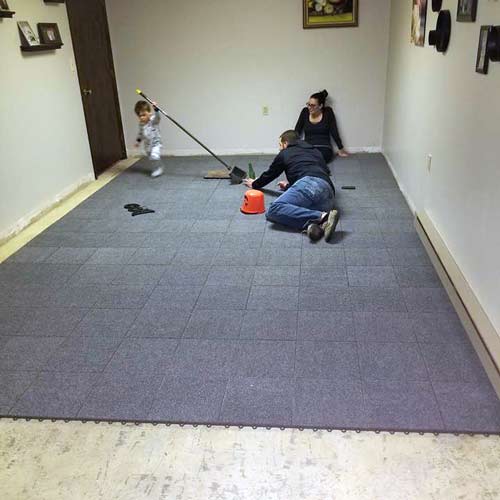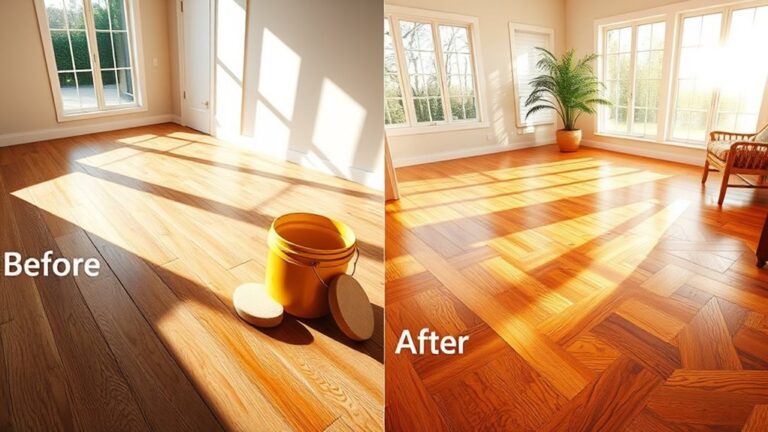Carpet tiles are an excellent choice for basement floors due to their durability and moisture resistance. They offer a versatile and cost-effective flooring solution that is easy to install and maintain.
Carpet tiles, also known as carpet squares or modular carpet, have gained popularity in home renovation projects, especially for basement areas. Basements often face challenges such as dampness and fluctuating temperatures, which require flooring that can withstand such conditions. Carpet tiles are designed to handle moisture better than traditional carpets and provide warmth and insulation against cold concrete subfloors.
Their ease of replacement also means that any water damage can be remedied quickly by swapping out affected tiles, making them a practical option for areas prone to spills or leaks. Installing carpet tiles in a basement can transform the space into a cozy and inviting area, enhancing the overall aesthetic appeal while ensuring functionality and comfort.
Introduction To Carpet Tiles For Basements
Carpet tiles, also known as modular carpets, are square sections of carpeting. They fit together on floors, like a puzzle. This makes them perfect for basement flooring. These tiles come in many colors and styles. Their size often ranges from 18″ x 18″ to 24″ x 24″.
There are several benefits when using carpet tiles in basements. They are easy to install, which can save time and labor costs. Tiles damaged by moisture can be replaced individually. This is more cost-effective than replacing a whole carpet. Carpet tiles are also durable and maintain warmth, providing a cozy environment.
Challenges exist with carpet tiles too. They can be more expensive than traditional carpet rolls. Also, inadequate installation can lead to tiles peeling up. It’s essential to consider the potential for moisture issues in basements. These can affect carpet tiles over time, requiring proper mitigation.
Factors Contributing To The Suitability Of Carpet Tiles For Basement Floors
Carpet tiles offer significant moisture resistance, making them a smart choice for basements. The presence of dampness in basements necessitates flooring that can handle such conditions. Reduced moisture absorption keeps floors and feet dry, contributing to a healthier environment.
The installation of carpet tiles is a straightforward process. Even on uneven surfaces often found in basements, these tiles can be laid with ease. This eliminates the need for costly and time-intensive sub-floor leveling.
For added insulation and comfort, carpet tiles are an excellent option. They provide a warm, cushioned underfoot feel, transforming a hard, cold basement floor into a cozy living area.
In terms of durability and maintenance, carpet tiles stand out. They are designed to withstand heavy foot traffic and are easy to clean or replace as needed. This makes them a practical solution for high-use basement spaces.
Design flexibility is yet another advantage. Carpet tiles come in various colors and patterns, allowing homeowners to customize their basement’s appearance. Creative patterns or solid colors can enhance the basement’s aesthetic appeal.
Installation And Maintenance Of Carpet Tiles In Basements
Installing carpet tiles in a basement can be a smart choice. Durable and versatile, these tiles fit well in moisture-prone areas. For a successful installation, one must first clean the floor thoroughly and measure the area. Use a utility knife for precise cuts to fit around corners and obstacles. Remember to leave room for expansion and use the correct adhesive.
Maintaining your carpet tiles is straightforward. Regular vacuuming keeps them fresh. Spot clean stains immediately to prevent setting. Professional cleaning annually extends their lifespan. If a tile becomes damaged, simply replace that single tile without redoing the whole floor. This makes carpet tiles a cost-effective option for basements.

Comparative Analysis: Carpet Tiles Vs. Alternative Basement Flooring Options
Carpet tiles offer a unique advantage for basement floors. Install with ease and replace quickly if damaged. Rolled carpet, while seamless, is harder to install and fix. Carpet tiles enhance a room’s warmth and soundproofing. Yet, moisture can be a concern in basements.
Compared to hard flooring options, carpet tiles feel softer underfoot and retain heat better. But, hard floors may resist water and wear longer. Usage is key. A playroom or gym might need the resilience of hard surfaces. A cozy den stands out with carpet’s texture and comfort.
| Flooring Type | Initial Cost | Longevity | Maintenance Cost |
|---|---|---|---|
| Carpet Tiles | Low | Medium | Low |
| Rolled Carpet | Medium | Medium | High |
| Hard Flooring | High | High | Low |
Cost matters. Carpet tiles can be a budget-friendly option. Often, they are less pricey than rolled carpet. Alternatives like hard flooring may seem costly. Still, they may save money over time. Think about both the price now and the price later.
Case Studies And Consumer Experiences
Many basement flooring upgrades have seen success with carpet tiles. Owners found them easy to install and maintain. Stories tell of their durability and comfort.
Challenges like dampness and frigid floors were common. Yet, carpet tiles with moisture-resistant features solved these issues. Some highlight the cost-effectiveness for large areas as another win.
Over time, reviews mostly reflect positive experiences. Families enjoy their basements’ warmth and style. Even after years, tiles stay fresh through simple cleaning routines.
Conclusion: Making An Informed Decision On Basement Flooring
Carpet tiles offer versatility and ease of installation for basement floors. Their modular nature allows for simple replacements if damage occurs. Insulation properties ensure a warmer underfoot experience in colder environments. Moisture resistance can vary, making it critical to select quality tiles.
Opt for tiles with a high degree of water resistance and antimicrobial treatments. This can protect against dampness-related problems. Proper installation and maintenance can extend their lifespan, maximizing your investment. Future trends in carpet tile design promise enhanced ecological friendliness and improved durability.
| Benefit | Limitation |
| Easy to replace | Varying moisture resistance |
| Warm underfoot | Requires careful selection |
| Flexible designs | Not all are antimicrobial |
Conclusion
Carpet tiles are a versatile and smart choice for basement floors. They offer ease of installation, durability, and moisture-resistance, making them ideal for below-grade spaces. Personalization is simple with the array of styles available. For a cozy yet practical basement transformation, consider carpet tiles as a top flooring contender.




